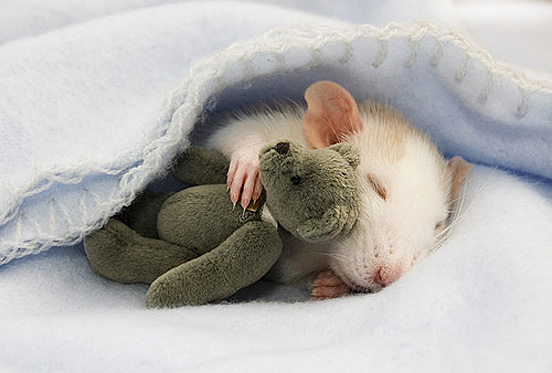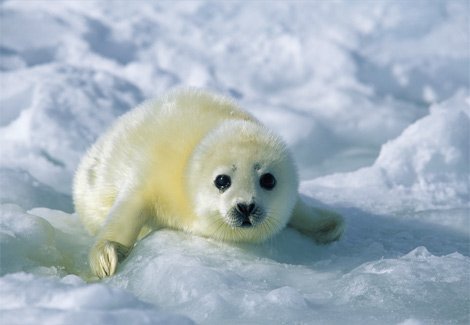Source(google.com.pk)
Cute Pictures Of Baby Animals Biography
Ethology (from Greek: ἦθος, ethos, "character"; and -λογία, -logia, "the study of") is the scientific and objective study of animal behaviour, and is a sub-topic of zoology. The focus of ethology is on animal behaviour under natural conditions,[1] as opposed to behaviourism, which focuses on behavioural response studies in a laboratory setting.
Many naturalists have studied aspects of animal behaviour throughout history. The modern discipline of ethology is generally considered to have begun during the 1930s with the work of Dutch biologist Nikolaas Tinbergen and by Austrian biologists Konrad Lorenz and Karl von Frisch, joint winners of the 1973 Nobel Prize in Physiology or Medicine.[2] Ethology is a combination of laboratory and field science, with a strong relation to certain other disciplines such as neuroanatomy, ecology, and evolution. Ethologists are typically interested in a behavioural process rather than in a particular animal group, and often study one type of behaviour (e.g. aggression) in a number of unrelated animals.
The desire to understand animals has made ethology a rapidly growing field. Since the turn of the 21st century, many aspects of animal communication, animal emotions, animal culture, learning, and even sexual conduct that experts long thought they understood, have been re-examined, and new conclusions reached. New fields have developed, such as neuroethology.
Understanding ethology or animal behaviour can be important in animal training. Considering the natural behaviours of different species or breeds enables the trainer to select the individuals best suited to perform the required task. It also enables the trainer to encourage the performance of naturally-occurring behaviours and also the discontinuance of undesirable behavioursThe term ethology derives from the Greek word èthos (ήθος), meaning character. Other words that derive from ethos include ethics[4] and ethical. The term was first popularized by American myrmecologist William Morton Wheeler in 1902.[5] An earlier, slightly different sense of the term was proposed by John Stuart Mill in his 1843 System of Logic.[6] He recommended the development of a new science, "ethology," the purpose of which would be explanation of individual and national differences in character, on the basis of associationistic psychology. This use of the word was never adopted.
[edit]Relationship with comparative psychology
Comparative psychology also studies animal behaviour, but, as opposed to ethology, is construed as a sub-topic of psychology rather than as one of biology. Historically, where comparative psychology researches animal behaviour in the context of what is known about human psychology, ethology researches animal behaviour in the context of what is known about animal anatomy, physiology, neurobiology, and phylogenetic history. Furthermore, early comparative psychologists concentrated on the study of learning and tended to research behaviour in artificial situations, whereas early ethologists concentrated on behaviour in natural situations, tending to describe it as instinctive. The two approaches are complementary rather than competitive, but they do result in different perspectives and, sometimes, conflicts of opinion about matters of substance. In addition, for most of the twentieth century, comparative psychology developed most strongly in North America, while ethology was stronger in Europe. A practical difference is that early comparative psychologists concentrated on gaining extensive knowledge of the behaviour of very few species. Ethologists were more interested in understanding behaviour in a wide range of species to facilitate principled comparisons across taxonomic groups. Ethologists have made much more use of a truly comparative method than comparative psychologists have.
[edit]Scala naturae and Lamarck's theories
This article needs additional citations for verification. Please help improve this article by adding citations to reliable sources. Unsourced material may be challenged and removed. (May 2010)
Jean-Baptiste Lamarck (1744–1829)
Charles Darwin (1809–1882)
See also: Great Chain of Being
Until the 19th century, the most common theory among scientists was still the concept of scala naturae, proposed by Aristotle. According to this theory, living beings were classified on an ideal pyramid that represented the simplest animals on the lower levels, with complexity increasing progressively toward the top, occupied by human beings. In the Western world of the time, people believed animal species were eternal and immutable, created with a specific purpose, as this seemed the only possible explanation for the incredible variety of living beings and their surprising adaptation to their habitats.[5]










Cute Pictures Of Baby Animals Biography
Ethology (from Greek: ἦθος, ethos, "character"; and -λογία, -logia, "the study of") is the scientific and objective study of animal behaviour, and is a sub-topic of zoology. The focus of ethology is on animal behaviour under natural conditions,[1] as opposed to behaviourism, which focuses on behavioural response studies in a laboratory setting.
Many naturalists have studied aspects of animal behaviour throughout history. The modern discipline of ethology is generally considered to have begun during the 1930s with the work of Dutch biologist Nikolaas Tinbergen and by Austrian biologists Konrad Lorenz and Karl von Frisch, joint winners of the 1973 Nobel Prize in Physiology or Medicine.[2] Ethology is a combination of laboratory and field science, with a strong relation to certain other disciplines such as neuroanatomy, ecology, and evolution. Ethologists are typically interested in a behavioural process rather than in a particular animal group, and often study one type of behaviour (e.g. aggression) in a number of unrelated animals.
The desire to understand animals has made ethology a rapidly growing field. Since the turn of the 21st century, many aspects of animal communication, animal emotions, animal culture, learning, and even sexual conduct that experts long thought they understood, have been re-examined, and new conclusions reached. New fields have developed, such as neuroethology.
Understanding ethology or animal behaviour can be important in animal training. Considering the natural behaviours of different species or breeds enables the trainer to select the individuals best suited to perform the required task. It also enables the trainer to encourage the performance of naturally-occurring behaviours and also the discontinuance of undesirable behavioursThe term ethology derives from the Greek word èthos (ήθος), meaning character. Other words that derive from ethos include ethics[4] and ethical. The term was first popularized by American myrmecologist William Morton Wheeler in 1902.[5] An earlier, slightly different sense of the term was proposed by John Stuart Mill in his 1843 System of Logic.[6] He recommended the development of a new science, "ethology," the purpose of which would be explanation of individual and national differences in character, on the basis of associationistic psychology. This use of the word was never adopted.
[edit]Relationship with comparative psychology
Comparative psychology also studies animal behaviour, but, as opposed to ethology, is construed as a sub-topic of psychology rather than as one of biology. Historically, where comparative psychology researches animal behaviour in the context of what is known about human psychology, ethology researches animal behaviour in the context of what is known about animal anatomy, physiology, neurobiology, and phylogenetic history. Furthermore, early comparative psychologists concentrated on the study of learning and tended to research behaviour in artificial situations, whereas early ethologists concentrated on behaviour in natural situations, tending to describe it as instinctive. The two approaches are complementary rather than competitive, but they do result in different perspectives and, sometimes, conflicts of opinion about matters of substance. In addition, for most of the twentieth century, comparative psychology developed most strongly in North America, while ethology was stronger in Europe. A practical difference is that early comparative psychologists concentrated on gaining extensive knowledge of the behaviour of very few species. Ethologists were more interested in understanding behaviour in a wide range of species to facilitate principled comparisons across taxonomic groups. Ethologists have made much more use of a truly comparative method than comparative psychologists have.
[edit]Scala naturae and Lamarck's theories
This article needs additional citations for verification. Please help improve this article by adding citations to reliable sources. Unsourced material may be challenged and removed. (May 2010)
Jean-Baptiste Lamarck (1744–1829)
Charles Darwin (1809–1882)
See also: Great Chain of Being
Until the 19th century, the most common theory among scientists was still the concept of scala naturae, proposed by Aristotle. According to this theory, living beings were classified on an ideal pyramid that represented the simplest animals on the lower levels, with complexity increasing progressively toward the top, occupied by human beings. In the Western world of the time, people believed animal species were eternal and immutable, created with a specific purpose, as this seemed the only possible explanation for the incredible variety of living beings and their surprising adaptation to their habitats.[5]
Jean-Baptiste Lamarck (1744 - 1829) was the first biologist to describe a complex theory of evolution. His theory substantially comprised two statements: first, that animal organs and behaviour can change according to the way they are used; and second, that those characteristics can transmit from one generation to the next (the example of the giraffe whose neck becomes longer while trying to reach the upper leaves of a tree is well-known). The second statement is that every living organism, humans included, tends to reach a greater level of perfection. When Charles Darwin went to the Galapagos Islands, he was well aware of Lamarck's theories and was influenced by them.
Cute Pictures Of Baby Animals Biography

Cute Pictures Of Baby Animals Biography

Cute Pictures Of Baby Animals Biography

Cute Pictures Of Baby Animals Biography

Cute Pictures Of Baby Animals Biography

Cute Pictures Of Baby Animals Biography

Cute Pictures Of Baby Animals Biography

Cute Pictures Of Baby Animals Biography

Cute Pictures Of Baby Animals Biography

Cute Pictures Of Baby Animals Biography

Cute Pictures Of Baby Animals Biography
No comments:
Post a Comment